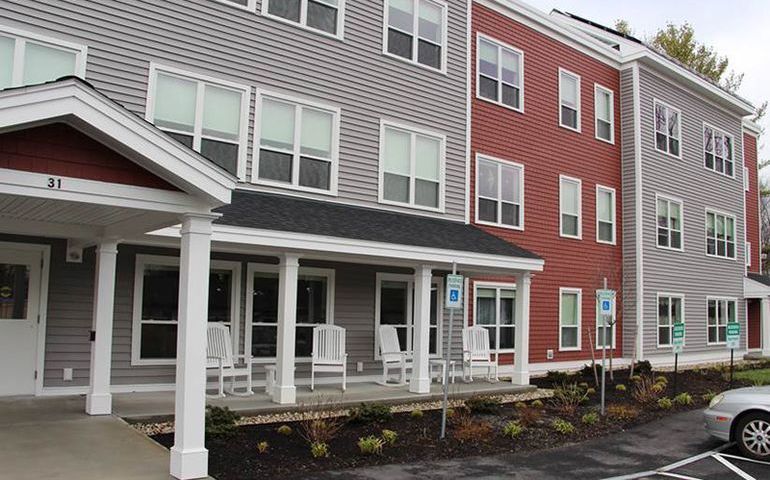Maine needs 20,000 affordable housing units to meet need, report says
 COURTESY / AVESTA HOUSING
Maine needs more affordable housing such as Bartlett Woods, an affordable senior housing complex in Yarmouth co-owned by Yarmouth Senior Housing and Avesta Housing.
COURTESY / AVESTA HOUSING
Maine needs more affordable housing such as Bartlett Woods, an affordable senior housing complex in Yarmouth co-owned by Yarmouth Senior Housing and Avesta Housing.
Maine needs 20,000 affordable housing units to meet the needs of its lowest-income residents, according to a report released Tuesday by the National Low Income Housing Coalition and the Maine Affordable Housing Coalition.
There are just 51 affordable and available rental homes for every 100 of the lowest-income renter households in Maine. Nearly 60% of the poorest renter households in Maine are spending more than half of their incomes on housing, with little left over for other basic necessities, the report said.
Nationally, the U.S. has a shortage of 7 million rental homes that are affordable and available to extremely low-income renters, whose household incomes are at or below the poverty guideline or 30% of their area median income. Only 36 affordable and available rental homes exist for every 100 extremely low-income renter households nationally.
"Our state is in a housing crisis that requires shared public, private and philanthropic response. Our state's economy and the health of our residents depends on it," said Maine Affordable Housing Coalition Director Laura Mitchell.
Across Maine, there are 39,716 renter households that are considered extremely low income with a maximum income of $26,200 for a four-person household. One-quarter of those renters are in the workforce, 28% are disabled, and 33% are seniors. The annual income needed to afford a two-bedroom rental home at the Housing and Urban Development’s fair market rent is $44,488.
The study comes as there is a limited supply of homes on the market in Maine, home prices and rental costs are surging and there's an influx of out-of-staters willing to pay premiums for housing.
The pandemic has only made things worse, the report said. Long-term federal investments are needed to combat this housing crisis for the lowest-income renters, Mitchell said.
"We are hearing from every business that they are having trouble trying to recruit people because of housing issues. Housing concerns are not unique to the lowest-income earners, but those households are having to make tough choices about food, medical care and child care to try to afford housing," Mitchell said. "This affects the workforce of our state, our economy and the social justice of our residents."
Although the federal government took actions during the pandemic to protect the lowest-income renters, the government’s actions were temporary. Most eviction moratoriums have been lifted and resources such as federal emergency rental assistance are running out.
Maine has made efforts to battle the affordable housing crisis. A bill, LD 2003, passed the Legislature on Monday, requiring towns to allow accessory dwelling units and duplexes wherever single-family homes are allowed. The bill also offers municipalities the grants and technical assistance needed to review their land-use rules, which smaller towns have said they couldn’t afford on their own.
"We made a huge step forward, but there were a number of concessions and compromises made. We need to do more statewide and nationwide," Mitchell said.
Mitchell said longer-term federal investments in affordable housing are needed to combat the underlying shortage of affordable housing that exposed so many of these lowest-income renters to housing instability in the first place.
“The pandemic has made plain our nation’s lack of a housing safety net,” said NLIHC President and CEO Diane Yentel. “It is time to invest in long-term housing policies that will finally address the systemic shortage of affordable housing and provide housing stability for the lowest-income families.”










0 Comments